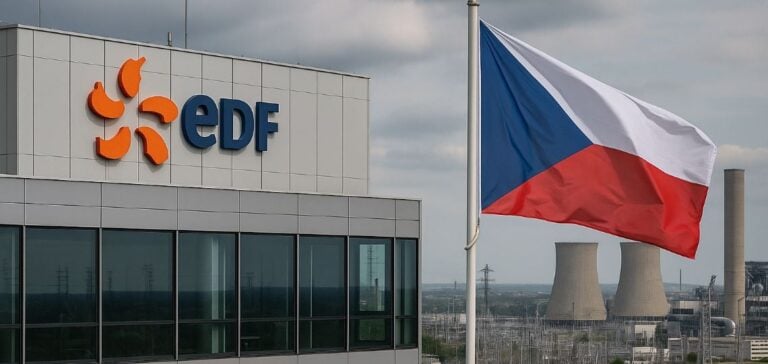The regional court in Brno set aside the action brought by Électricité de France (EDF) against the tender that named Korea Hydro & Nuclear Power (KHNP) to build two reactors at the Dukovany site. The ruling leaves intact the €16bn ($17.1bn) contract, finalised in early June, for which EDF sought financial damages after being excluded in two thousand twenty-four. The court found the procedure compliant with Czech public procurement law, dismissing claims of unequal treatment. EDF now has eight days to appeal to the Supreme Administrative Court.
Strategic value of the project
The government views the new nuclear units as a keystone of its coal phase-out and supply security strategy, with the country now importing little Russian oil or gas. Each reactor is expected to cost about CZK200bn ($8.7bn), a price deemed “highly competitive” by the Ministry of Industry. Under the official timetable, ground-breaking is due in two thousand twenty-nine with the first unit coming online in two thousand thirty-six, extending the life of the existing fleet. Officials forecast an additional one gigawatt of capacity per reactor, close to twelve % of current annual demand.
The Minister of Industry, Lukas Vlcek, welcomed the judgment on social network X and said the outcome “confirms the transparency of the tender”. EDF, for its part, stated in a note to media that it “will consider all legal options” to protect its interests. The group has already taken the matter to the European Commission (EC), which is examining whether KHNP received state subsidies that distorted competition within the European Union (EU). Brussels has yet to provide a timeline for its findings.
Financial risks and appeal calendar
A potential EC probe could lead to remedial measures ranging from a fine to partial annulment of the alleged aid. Analysts at Wood & Company estimate that a delay of more than twelve months would inflate construction costs by about five % per year. For EDF, any compensation would hinge on proving direct harm, a point the Czech court has already dismissed. KHNP stated it “will respect any European inquiry” while continuing technical preparations on site.
Security of supply remains the priority for Prague, where electricity consumption rises by an average of 1.8 % each year, supported by industrial recovery. According to the International Energy Agency (IEA), nuclear’s share could reach forty % of the Czech mix by two thousand forty, up from thirty-three % today. Authorities therefore aim to curb imports and stabilise wholesale domestic prices, which have been strongly linked to gas since the European energy crisis. The Brno ruling thus keeps the project on track while the market monitors developments in Brussels.






















